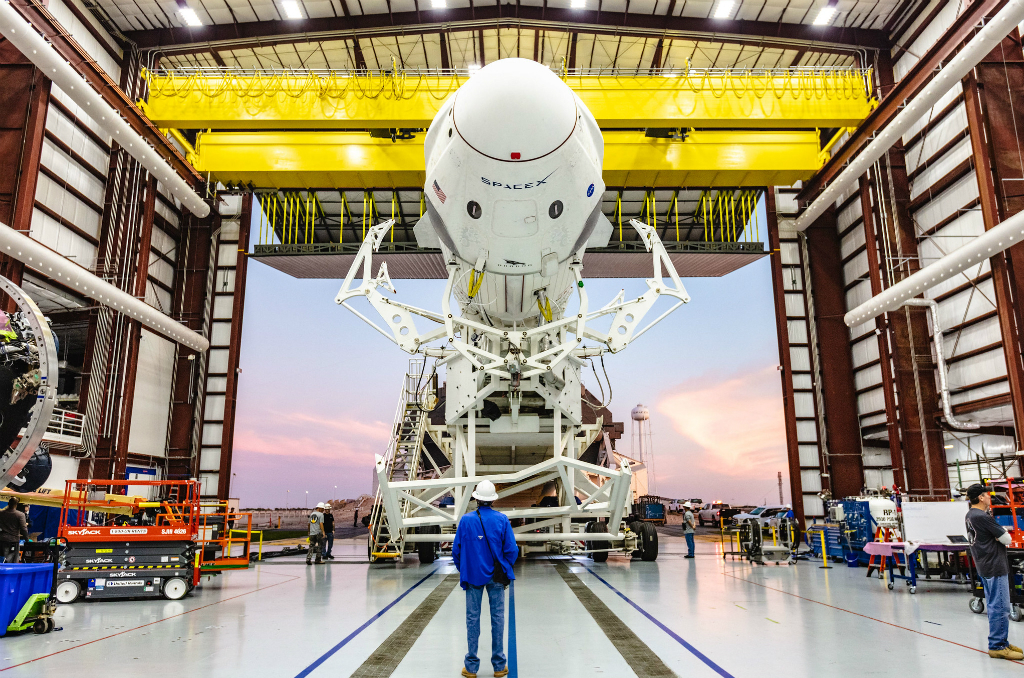It’s been a busy, busy week for SpaceX, both in the sky and on the ground.
The California-based company made history on Tuesday when the Dragon capsule splashed down.
The return of the vessel, which was docked on the International Space Station since July, marked the first time a space vehicle has made three resupply missions.
The capsule was loaded with more than 2,700 pounds of materials and valuable scientific experiments.
NASA’s ground crew will analyze the experiments, which, according to SpaceRef, included:
Bio-Mining in Microgravity
“The Biorock investigation provides insight into the physical interactions of liquid, rocks and microorganisms in microgravity and improving the efficiency and understanding of mining materials in space.”
Mechanisms of Moss in Microgravity
“Space Moss compares mosses grown aboard the space station with those grown on Earth to determine how microgravity affects its growth, development, and other characteristics.”
Improving Tire Manufacturing from Orbit
“The Goodyear Tire investigation uses microgravity to push the limits of silica fillers for tire applications.”
SpaceX hopes that the continued success of the cargo Dragon will translate to the Crew Dragon, the company’s vessel being tested to ferry astronauts, in addition to supplies, to the ISS.
A fire during a Crew Dragon engine test set SpaceX back, meaning the first crewed flight might not happen until 2020.
Back at SpaceX headquarters, the company has updated its SmallSat Rideshare Program.
“Earlier this month, SpaceX announced the Smallsat Rideshare Program and received a lot of interest and great feedback from customers,” SpaceX’s statement to Space News read. “As such, we have updated the terms of the program and have made the service even more compelling with reduced pricing and increased flight opportunities.”
The updated program will now offer monthly launches at a cost of $1 million for payloads weighing 440 pounds.
When it was first announced, SpaceX was offering Falcon 9 rideshare missions at $2.25 million for payloads up to 330 pounds and $4.5 million for payloads up to 660 pounds.
The new launch schedule on SpaceX’s website now shows 29 missions starting March 2020 to December 2021.
“SpaceX is committed to serving the commercial market as it grows and changes, and we believe we can address the needs of small satellite operators by offering reliable, cost-effective access to orbit through regularly scheduled, dedicated rideshare missions,” a company spokesperson said.
Ideally, small satellite operators will book well in advance – 12 months or more – but SpaceX is focusing on flexibility, so it will let providers book just six months before a launch for an additional fee. SpaceX will also allow passengers who run into delays to apply 100 percent of monies paid towards the cost of rebooking.
Chris began his writing as a hobby while attending Florida Southern College in Lakeland, Florida. Today he and his wife live in the Orlando area with their three children and dog.

